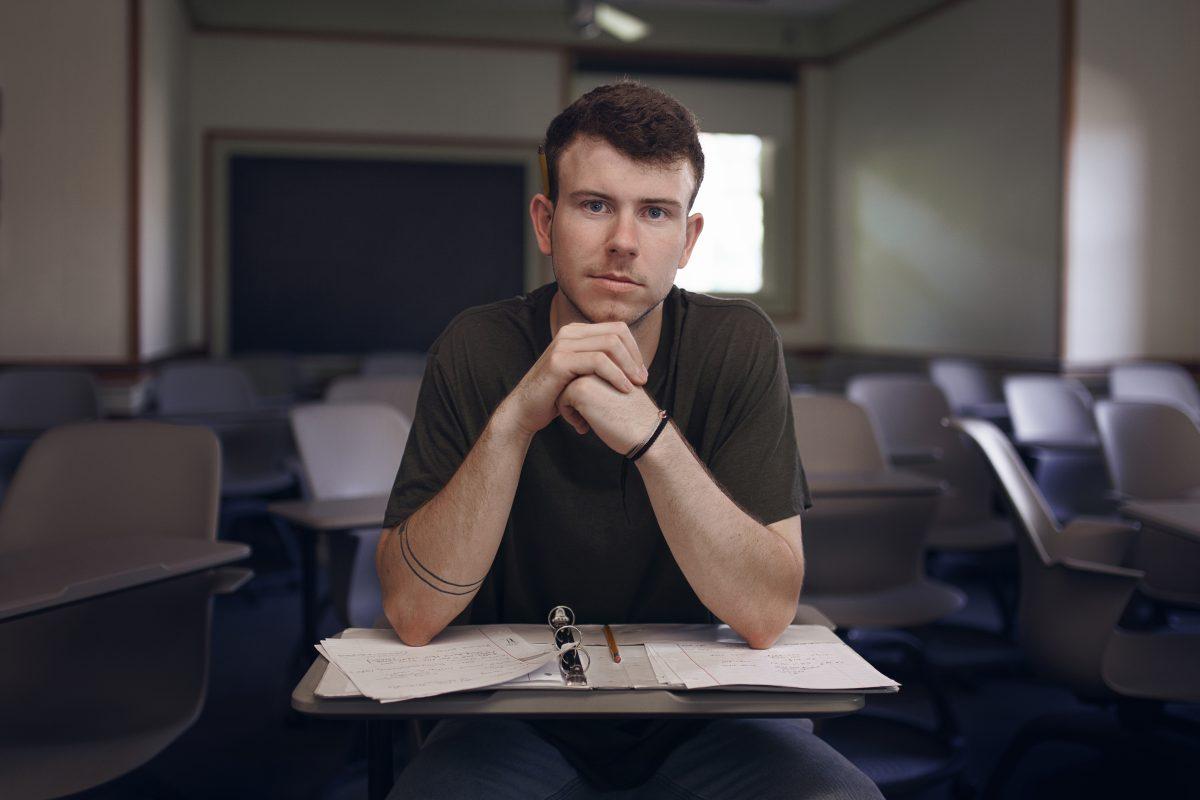Imagine this: Wake up at 6 a.m., long before the sun is up during winter in Oregon. Hop out of bed and get dressed. Quickly brush your teeth and grab food on your way out of the door. Arrive at the gym to lift weights until about 7:45 a.m. Rush home to take a quick shower before heading to class for the day. After sitting through three courses, grab a quick snack before heading to the track for practice. Run and spring for about two hours before heading home. Take another shower, eat dinner, and then finish up all school work. Before you know it, the time is now 10:30 p.m. and it’s time for bed, to have the same routine tomorrow. That is a look into the life of a collegiate student-athlete. But when struggling with financial insecurity, finding a job with such a bustling schedule can be very difficult.
Financial insecurity is a relentless cycle, as many students in college are all too familiar with. University of Oregon junior Anjola Oladapo found herself struggling to keep up with finances this year, with a new tuition increase of $8,910 in the 2016-17 school year, to $9,765 for this past academic year. Although the tuition increase alone was less than $1,000 in three years, that number is substantial to Oladapo and other students who are struggling to keep themselves afloat financially. How does one tackle gaining security and saving money with the constant stress, work, and extracurriculars that surrounds college?
Prior to transferring to the University of Oregon to study accounting, Oladapo was on the track and field team at Lane Community College her freshman year during the 2016-2017 school year. During that time, she was always busy balancing school and training, and due to a lack of availability, she was not able to get a job. Although she was on a financial scholarship, it was difficult to keep up with extra costs and most importantly- rent.
This ultimately forced Oladapo to move back home after her first year. “Paying rent and me not working because I was doing a sport was hard for my parents to be able to do all the things they’re paying for and paying for my rent and cost of living,” she said. After living at home and saving up for a year while attending Portland Community College, Oladapo had the opportunity to attend the University of Oregon to finish her degree.
Most weeks, Oladapo is unable to eat out, as much of her money goes to paying rent and school supplies. The little money left over is used for groceries, though Oladapo generally cannot afford to go shopping more than once a week, with the lack of time and money. “She juggles jobs between Portland and Eugene. She’s always applying for jobs knowing that our parents are not able to help that much financially. I ask her what she’s doing on the weekends, and she always has shifts, so she often sacrifices her weekends in order to put herself through classes and pay for rent,” Oladapo’s younger brother, Kitan Oladapo, said.
However, she recently found a new job to help relieve the burden, but quickly turned to campus resources to aid in other ways. “The Sustainability Center on campus has free toilet paper for students and that was something fundamental that I needed,” Oladapo said about utilizing campus resources.
The Student Sustainability Center is one of the many on-campus resources that are available to University of Oregon students that aid with those struggling financially in various ways. Along with giving away free toilet paper, the Student Sustainability Center also aids with food insecurity by providing free produce drops. Every second and fourth Tuesday of every month for a few hours right outside the EMU, the Student Sustainability Center organizes a food pantry in coordination with Food for Lane County.
Another resource for those struggling with food insecurity is the Student Food Pantry, located at 1329 E 19th Ave. This establishment is focused on feeding college students living in the Eugene-Springfield area who grapple with having enough money to buy groceries.
Doug Hale, who runs the Student Food Pantry, is the Chaplin for the Episcopal Campus Ministry and has been in charge of the Student Food Pantry for a little over six years. The pantry is located on the ministry’s property. The garage is where the produce and canned food are stored. Money is donated to allow for purchase of food items, but most of the food is provided by Food for Lane County.
During fall term of 2012, the pantry opened, and more students started to slowly file in each Wednesday and Thursday. By winter, there had been a substantial increase in student attendance, from 40-90 students per week to around 100-150.
Hale believes this increase was “based on accessibility,” as well as spreading the word. As of fall 2018, there was around 200 students and community members who came to the pantry weekly, as Northwest Christian students were welcomed with open arms.
With volunteers help, free coffee and water, as well as music playing, the pantry provides an inclusive and welcoming environment. “We try to make this as friendly as possible,” Hale said. Keeping the anonymity is an important part of the pantry, as Hale mentioned that there is often a “stigma” tied to the pantry. Some may view using the pantry as a sign of weakness or need, but this is a great resource that provides some food security.
Oladapo has visited the pantry a few times since being in Eugene, as it is a free, fast, and easy way to get produce with her lack of time and money on a weekly basis.
Hale says the biggest takeaway from working with the pantry was about just a year after the pantry opened, with an anonymous email. The email thanked Hale and focused on the fact that the pantry was not just about food, but about supporting people. “We support people and food is the mechanism,” Hale said.
While working with a group of campaign students in the School of Journalism and Communication on campus, the group was trying to come up with a slogan for the pantry. But this proved to be more difficult than anticipated. Finally, the group came up with the pantry’s current slogan, “Fueling success while fighting hunger.” The pantry is not just about feeding students, but also about providing a source of support.
As Oladapo finishes out her junior year, her main focus this summer is to work and save up money in hopes that she will have more financial freedom in the near future.










![[Photo Courtesy of the Lara Family]
Ruben embraces his beloved childhood goat, Katrina.](https://ethos.dailyemerald.com/wp-content/uploads/2025/05/katrina-1-1060x1200.jpg)


